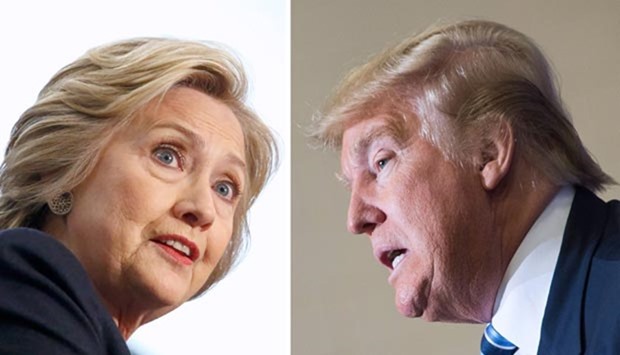Hillary Clinton and Donald Trump hit the campaign trail on Wednesday after their big primary wins in New York, with the Democratic frontrunner locking up the nomination, while the Republican billionaire's path to victory remains unclear.
The routs on their home turf reset the races in their favour, with Clinton putting an end to rival Bernie Sanders' multi-state winning streak and Trump righting his ship after a series of losses to Ted Cruz that have raised the spectre of a brutal battle at a contested convention in July.
"The race for the Democratic nomination is in the home stretch and victory is in sight," Clinton told jubilant supporters late on Tuesday in Manhattan.
Clinton - the former secretary of state, first lady and senator from New York - widened her already substantial delegate lead by securing 57.9% of the vote.
Sanders, who was born and raised in Brooklyn but represents Vermont in the US Senate, received 42.1% - clearly a letdown for a campaign which had predicted a strong showing.
In her victory speech, the 68-year-old Clinton shifted her focus to the general election match-up with Republicans, extending an olive branch to Sanders supporters after a particularly tense New York primary battle.
"It's humbling that you trust me with the awesome responsibility that awaits our next president," she said.
"And to all the people that supported Senator Sanders, I believe there's much more that unites us than divides us."
But the self-declared democratic socialist Sanders, who was recharging his batteries in Vermont, expressed determination to remain competitive.
"There are five primaries next week and we think we are going to do well and we think we have a path to victory," he insisted to reporters.
Sanders, 74, returns to the campaign trail on Thursday in Pennsylvania, which holds its primary on April 26, as do Connecticut, Delaware, Maryland and Rhode Island.
Trump confident
Trump wasted little campaign time, scheduling campaign stops in a trio of states on Wednesday including Pennsylvania and Maryland. Clinton holds two events later on Wednesday in Philadelphia.
Trump scored a blowout victory Tuesday with 60.5% of the vote, against 25.1% for Ohio Governor John Kasich, and 14.5% for Trump's main rival Cruz, an arch-conservative Texas senator who was thumped after daring to criticise "New York values."
"We don't have much of a race anymore," a confident Trump said after his victory secured him at least 89 of the 95 New York delegates at stake.
"Senator Cruz is just about mathematically eliminated," he said, noting how Trump's campaign is nearly 300 delegates ahead.
Trump's provocative candidacy has appalled establishment Republicans, many of whom have joined an effort to block him from winning the nomination.
But Trump, 69, toned down his divisive rhetoric on Tuesday, declining to use his epithet "Lyin' Ted" to belittle his rival, although he continued to take subdued digs at the "rigged" primary delegate system.
Even with his New York victory, Trump is far from guaranteed the 1,237 delegates necessary to win the Republican nomination outright before the July convention in Cleveland.
He has now won 847 delegates, according to a CNN tally, with some 670 delegates at stake in the remaining 15 Republican primaries.
Cruz added zero New York delegates to his total of 553, while Kasich has 148.
Humbled
In many other states, though, Cruz's campaign has shown more savvy than Trump's in working the complex delegate system.
If Trump does not reach the 1,237 threshold, he fears Republican grandees will conspire to deny him the nomination in Cleveland, even if he is well ahead in delegates.
For the past two weeks, the real estate mogul has expanded and reshuffled his campaign inner circle, notably adding expert Paul Manafort to oversee his delegate-getting and convention operations.
Cruz, angling for a contested convention, downplayed Trump's New York command performance as nothing more than "a politician tonight winning his home state."
In a recent Philadelphia speech where he invoked former presidents Ronald Reagan and John F. Kennedy, Cruz called on Republicans to coalesce behind him.
"We must unite the Republican Party because doing so is the first step toward uniting all Americans," he said.
Trump and Clinton are well ahead in polls in Pennsylvania and Maryland, the two big primary prizes on April 26.

